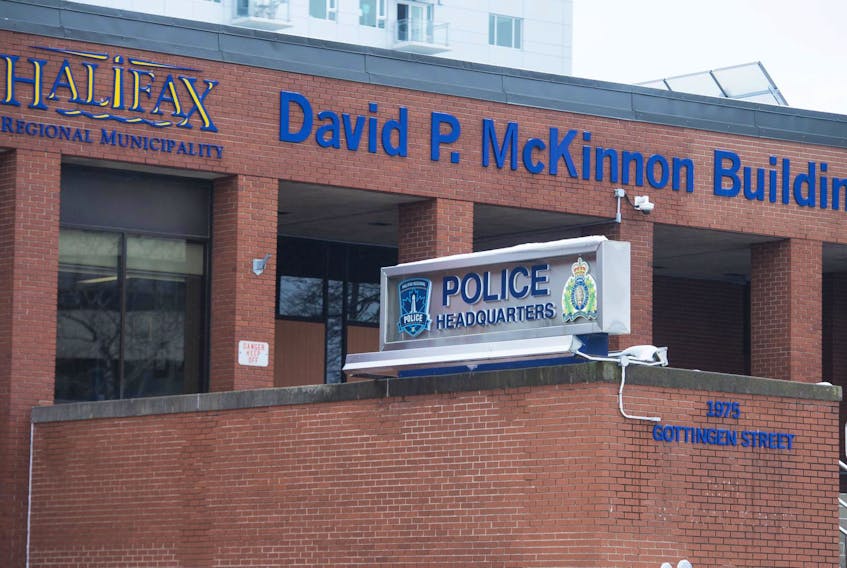Chief Jean-Michel Blais will vacate his office for good on Friday but the ultimate “i” still has not been dotted on a contract for his successor as top cop at Halifax Regional Police headquarters.
“I wouldn’t classify it as a complication but it is part of negotiations,” Coun. Steve Craig, chairman of the Halifax police commission, said of a provision in the deal that is stalling the search committee’s efforts to put a new chief in the office.
“We’re working on that and hopefully we’ll be able to complete that shortly and be able to go to the commission and then to council.”
Craig said the negotiations will not likely be discussed at Monday’s police commission meeting, which is expected to be dedicated primarily to a response to the recently released Wortley report on street checks.
On March 25, Craig said the search committee was negotiating with one applicant and that a single “key aspect” of the contract was still to be hammered out.
“It’s taken a little bit longer than I have thought,” Craig said Wednesday. “It’s the same as what we did with Jacques Dube when we hired him, getting into contract negotiations at that level.”
Dube was hired as the municipality’s chief administrative officer three years ago.
Two names, Sonia Thomas and Barbara McLean, have topped the rumour mill as prospective chiefs. Both have had a long-standing relationship to the Toronto Police Service.
Thomas, born in Toronto to Jamaican parents, recently retired from the country’s largest municipal police force after serving for more than 30 years, according to an online article written by a fellow officer.
Thomas attended the University of Prince Edward Island before completing her police training in 1987. She ascended the ranks of the Toronto force, being promoted to sergeant in 2001 and to staff sergeant six years later. Thomas spent time as a police instructor and then moved up to inspector. Thomas was a trailblazer, having few role models as black female officers and even fewer as high-ranking officers in the Toronto force.
McLean was appointed to the rank of deputy chief in the Toronto force in August 2017.
The former graduate of St. Francis Xavier University in Antigonish has nearly 30 years experience with Toronto police that includes extensive experience and a proven track record in policing, public safety, community engagement, policy development, strategic planning, fiscal accountability and leadership development, reads her online biography.
Her skill set is attributed to applied experience and leadership in areas including front-line policing, marine policing, criminal investigation, human resources, training and development, incident command, and a commitment to life-long learning and community involvement.
“I wouldn’t comment on anybody,” Craig said when asked if Thomas and McLean were or are candidates for the Halifax job.
Craig has said in the past that the search committee began by assessing more that 30 applicants from across the country, before shortlisting eight candidates in a field marked by gender and racial diversity.
Whoever ascends to the top job will be immediately confronted with the issue of police checks. Toronto criminologist Scot Wortley presented an 180-page report on street checks in Halifax in late March, recommending a ban or strict regulations on the police practice of stopping drivers or pedestrians to ask for identification and other information.
Wortley’s report said data from Halifax police shows that between the years 2006 and 2017, black civilians were almost six times more likely to be street-checked than white people.
“Street checks have contributed to the criminalization of black youth, eroded trust in law enforcement and undermined the perceived legitimacy of the entire criminal justice system,” Wortley said.
The day following the release of the report, provincial Justice Minister Mark Furey directed police across the province to immediately cease using street checks as part of a quota system or performance measurement tool. The minister is expected to make a further street check announcement Friday.
Thomas and McLean were part of a police force that initiated a new carding policy early in 2017 in the wake of Ontario-wide consultations and a review by Justice Michael Tulloch. The policy stipulates that police officers must inform people that they have a right not to talk to police or produce identification in cases other than arrest, detainment or when a search warrant is executed.
Wortley said Halifax police officers interviewed for his report, for the most part, thought that such a policy would be useless because anyone stopped or approached on the street would simply choose not to talk to police.
Craig said “the environment around street checks nationally,” was a discussion point with candidates interviewed for the job to oversee a roster of more than 530 sworn police officers.
Blais announced last July that he would be stepping away from the job he’s held since October 2012. Taking the helm after a lengthy RCMP career, Blais grappled with issues that included missing drug evidence, simmering street check grievances and complaints within the police force that employees were not receiving adequate PTSD treatment.
Craig said the identification of a new chief could be discussed at the next commission meeting on May 13 and then at a regional council meeting the following day, where council could ratify the new contract. Both those discussions would be held behind closed doors and the chief would be introduced to the public at a later news conference.









